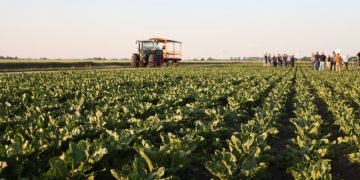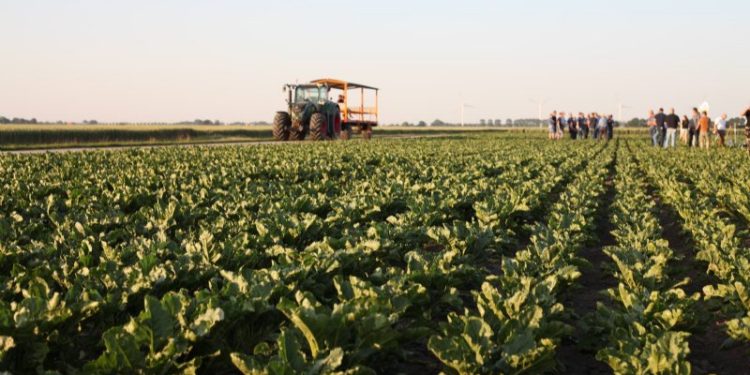In this article, we delve into the exciting realm of sugar beet breeding and highlight the latest developments in improving drought tolerance and disease resistance in this vital crop. By utilizing the data from reputable sources, including the insights provided in the article from Nieuwe Oogst (source: https://www.nieuweoogst.nl/nieuws/2023/06/27/focus-bietenveredeling-ligt-op-droogtetolerantie-en-ziekteresistentie), we provide valuable information for farmers, agronomists, agricultural engineers, farm owners, and scientists involved in the sugar beet industry.
According to the recent report by Nieuwe Oogst, sugar beet breeders are placing significant emphasis on enhancing the traits of drought tolerance and disease resistance in their breeding programs. These efforts aim to address the challenges posed by climate change and pathogenic threats, ultimately ensuring the sustainability and productivity of sugar beet cultivation.
The impact of climate change, including erratic rainfall patterns and prolonged droughts, poses a significant risk to sugar beet production. Breeders are focusing on selecting and developing sugar beet varieties that exhibit improved drought tolerance. These varieties possess traits that enable them to maintain optimal growth and yield even under water-stressed conditions, mitigating the negative effects of drought on crop performance.
In addition to drought tolerance, disease resistance is a crucial aspect of sugar beet breeding. Various pathogens, such as Cercospora leaf spot and Rhizoctonia root rot, can significantly impact sugar beet yields and quality. Breeders are employing advanced breeding techniques and genetic markers to identify and incorporate disease-resistant traits into new sugar beet varieties. This proactive approach aims to minimize the reliance on chemical interventions, reduce crop losses, and ensure a more sustainable and resilient sugar beet industry.
In conclusion, the focus on improving drought tolerance and disease resistance in sugar beet breeding reflects the industry’s commitment to addressing climate challenges and pathogenic threats. By developing sugar beet varieties with enhanced traits, farmers can benefit from increased resilience, productivity, and sustainability in their sugar beet cultivation practices. Agronomists, agricultural engineers, farm owners, and scientists can leverage these advancements to optimize crop management strategies and contribute to the long-term viability of the sugar beet industry.
Tags: sugar beet breeding, drought tolerance, disease resistance, climate change, pathogenic threats, crop sustainability, sugar beet industry, genetic markers, crop management, agricultural resilience































